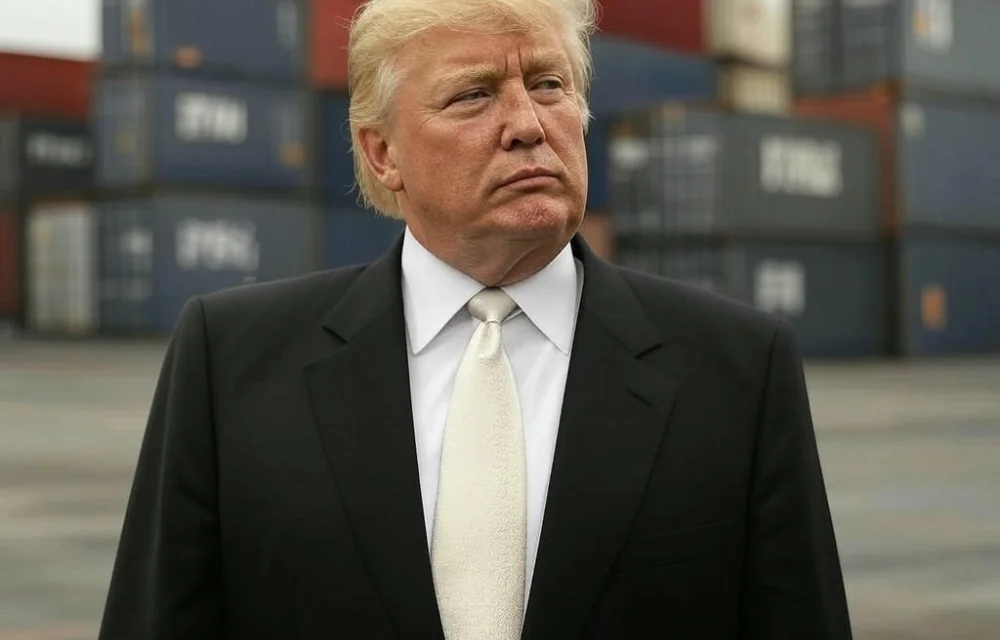Tariff Relief on Canadian and Mexican Imports
On March 6, 2025, President Donald Trump announced temporary exemptions from the recently imposed 25% tariffs on imports from Canada and Mexico. These exemptions, effective until April 2, 2025, aim to address economic concerns and maintain robust trade relationships within North America.
Scope and Duration of Exemptions
The exemptions apply to approximately 50% of Mexican imports and 38% of Canadian imports that comply with the United States-Mexico-Canada Agreement (USMCA). Notably, the automotive sector benefits significantly, with vehicles and parts meeting USMCA criteria exempted from the tariffs. Additionally, certain agricultural products, such as potash—a key fertilizer component—have seen tariff reductions from 25% to 10%. These exemptions are set to expire on April 2, 2025, coinciding with the planned implementation of a “reciprocal tariff” strategy. This forthcoming strategy intends to impose tariffs on countries equivalent to those levied on U.S. goods, promoting equitable trade practices.
Rationale Behind the Decision
President Trump cited multiple factors influencing the temporary exemptions. A recent conversation with Mexican President Claudia Sheinbaum played a pivotal role, reflecting mutual respect and a commitment to collaborative efforts in border security and combating fentanyl trafficking. Engagements with leaders from major automotive companies, including Ford, General Motors, and Stellantis, underscored the necessity of supporting the U.S. automotive industry during this transitional period. The President also indicated that the exemptions might extend beyond April if Canada and Mexico demonstrate substantial progress in addressing issues like fentanyl smuggling.
Reactions from Canada and Mexico
Canadian Prime Minister Justin Trudeau described his discussion with President Trump as “promising,” acknowledging the suspension as a positive development. Consequently, Canada has postponed a second wave of retaliatory tariffs on U.S. goods valued at $87.4 billion until April 2. Mexican President Sheinbaum expressed gratitude for the exemptions, characterizing her conversation with President Trump as “excellent and respectful.” She reaffirmed Mexico’s dedication to joint initiatives aimed at curbing fentanyl trafficking and enhancing border security.
Market and Corporate Responses
Financial markets exhibited volatility following the tariff announcements. The S&P 500 index declined by 1.8% on March 6, reflecting investor apprehension. Retailers such as Target and Best Buy have raised concerns about potential price increases for products like avocados and electronics if the tariffs persist. Conversely, automotive stocks experienced gains after the exemption news; Ford’s shares rose by 3.65%, General Motors saw a 1.76% increase, and Stellantis reported a 2.46% uptick.
Anticipated “Reciprocal Tariff” Strategy
The administration plans to implement a “reciprocal tariff” approach starting April 2, 2025. This policy aims to match the tariff rates imposed by other countries on U.S. exports, striving for balanced trade relationships. While President Trump advocates this strategy as a means to achieve “trade fairness,” experts caution that it could escalate into a broader trade war, potentially driving up consumer prices and hindering economic growth. Specific details regarding targeted products or countries remain under deliberation.
Current Status as of March 7, 2025
The White House has clarified that the exemptions are not retroactive; goods subjected to tariffs between March 4 and March 6 will not receive refunds. Commerce Secretary Howard Lutnick emphasized that the exemptions provide businesses with an opportunity to adjust supply chains accordingly, noting that market reactions do not dictate policy decisions. There is growing concern that the reciprocal tariffs in April may extend to other nations, including the European Union and India, potentially broadening the scope of trade conflicts.
Impact on Financial Markets
The temporary exemptions have led to mixed reactions in financial markets. The S&P 500 index dropped by 1.8% on March 6, signaling investor concerns over trade instability. Major retailers, including Target and Best Buy, warned of possible price hikes for goods such as avocados and electronics if the tariffs remain in place.
Sectoral Impacts
The automotive industry benefited from the exemptions, with Ford, General Motors, and Stellantis stocks rising by 3.65%, 1.76%, and 2.46%, respectively. The agricultural sector also saw relief, as tariff reductions on potash from 25% to 10% may ease inflationary pressures on fertilizer and agricultural product prices.
Future Market Outlook
As the April 2 deadline approaches for the “reciprocal tariff” strategy, market uncertainty may persist. This strategy, which aims to impose tariffs equivalent to those faced by U.S. exports, could escalate trade tensions. Investors remain cautious, awaiting detailed information on the strategy’s scope and its potential impact on global trade and economic growth.
Effect on Currencies and Commodities
Trade tensions may influence foreign exchange and commodity markets. Amid uncertainty, the euro could weaken against the U.S. dollar, while gold, viewed as a safe-haven asset, continues its upward trend, reaching $2,900 per ounce.
Conclusion
President Trump’s temporary tariff exemptions may provide short-term stability to financial markets, particularly in the automotive and agricultural sectors. However, ongoing trade tensions and the potential implementation of reciprocal tariffs could heighten uncertainty in financial markets. Investors must closely monitor trade policy developments and economic strategies to make informed decisions.

